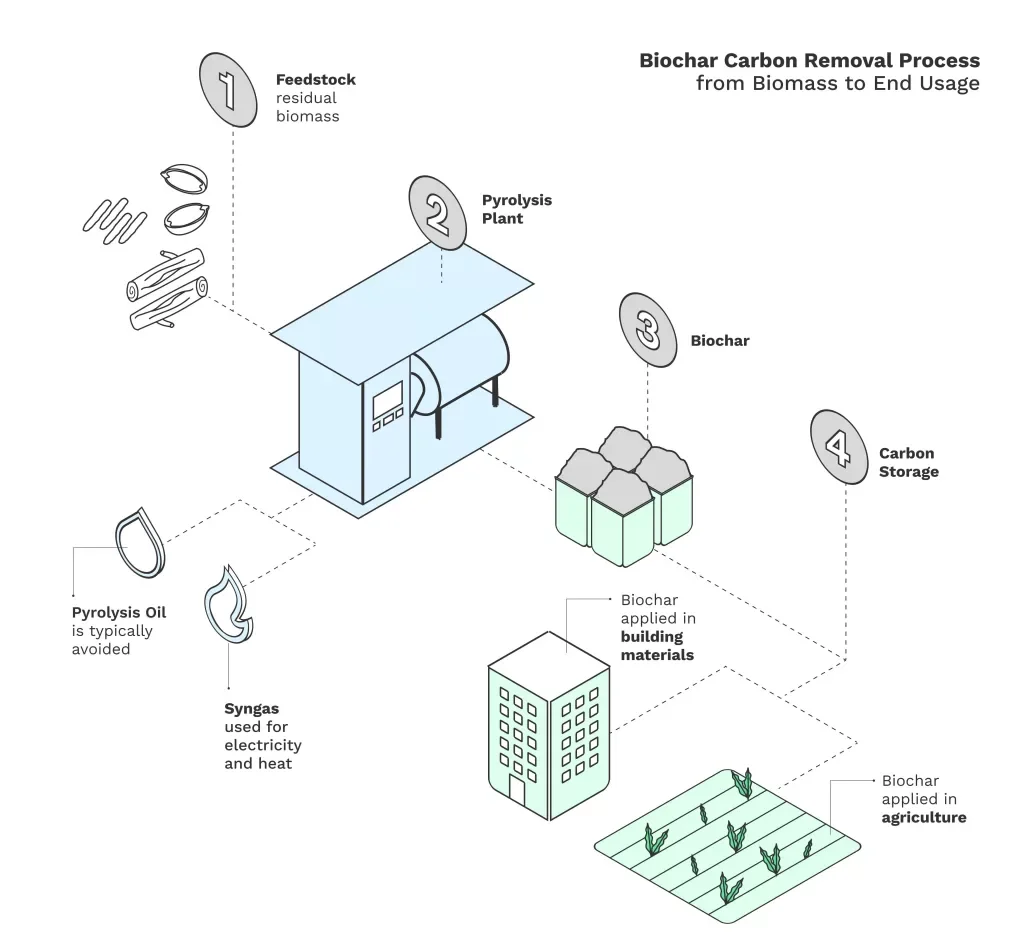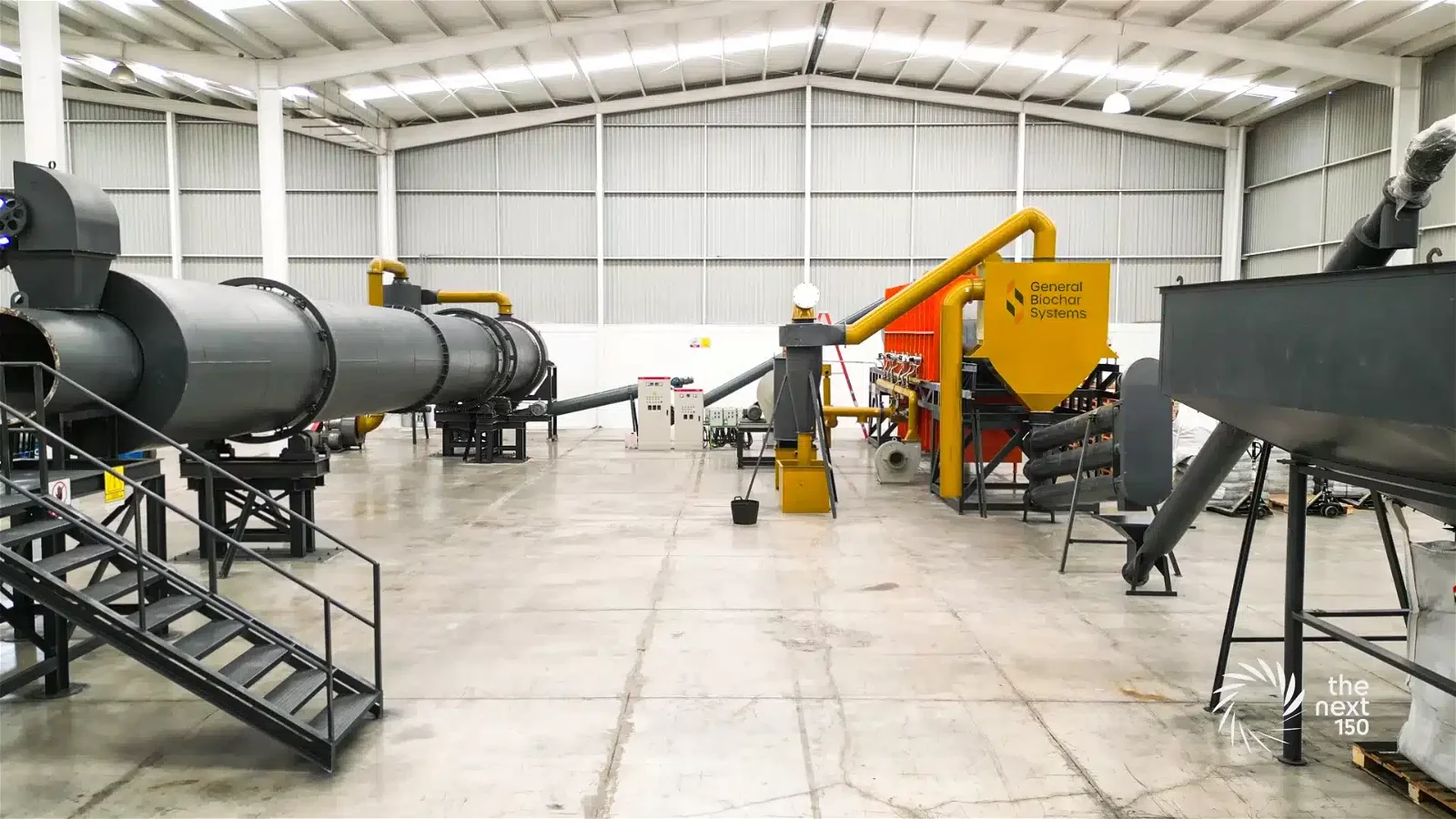The Next 150, a prominent carbon removal developer and operator, has inked a significant deal with Shell Environmental Products aimed at accelerating the adoption of biochar technology.
Under their 5-year agreement, the biochar producer will supply Shell with carbon removal credits of up to 22,500 generated from its large-scale facility in Mexico. This agreement represents one of the first transactions involving carbon removal credits from Mexico’s largest biochar project.
Patrick Atanasije Pineda, Managing Partner at The Next 150, expressed enthusiasm about the partnership, noting that:
“Shell Environmental Products’ support marks a significant step forward in our strategy to scale the biochar pathway of carbon removal across Latin America. Large volume as well as long-term offtake agreements from global companies are key to unlocking growth capital and project finance in the global south.”
Accelerating Carbon Removal with Biochar
Biochar production involves capturing carbon from the atmosphere through photosynthesis by utilizing biomass, such as agricultural waste. This biomass undergoes thermochemical processing to convert it into stable carbon. It can be stored long-term in soil or incorporated into construction materials.

According to the World Economic Forum, Biochar Carbon Removal (BCR) isn’t just an option for achieving net zero targets—it’s imperative. BCR can remove between 0.44 to 2.62 gigatons of CO2 annually. As such, it can address up to 35% of the carbon removal requirements in scenarios aimed at stabilizing the climate.
Remarkably, biochar receives only about 12% of CDR funding but accounts for 94% of delivered carbon credits in 2023. Moreover, biochar comes at a significantly lower cost compared to other durable CDR approaches. It has an average cost of $179 per ton of CO2, much lower than the $388/ton average CDR price.
In North America, the largest biochar production facility is under construction in Canada. The Port-Cartier facility is the country’s first industrial-scale biochar production plant, representing a great milestone in Canada’s net zero efforts.
The Next 150 current biochar project is undergoing third-party audit and certification with Puro.Earth, a leading platform for engineered carbon removal, majority owned by NASDAQ.
Shell Environmental Products will proceed to offtake the credits upon approval of the project, solidifying its commitment to environmental sustainability.
Shell Environmental Products operates as a team dedicated to collaborating with clients to integrate carbon credits into their climate strategies. Their primary focus lies in sourcing and trading carbon credits and other environmental products.
The portfolio curated by the team consists of projects aimed at various objectives. These include carbon removal from the atmosphere, emission avoidance, and emission reduction.
GBS Redefines Biochar Removal Solutions
Since its inception in 2023, The Next 150 has made remarkable strides in establishing a fully operational biochar production venture. The Swiss-based carbon removal company is doing it through its subsidiary, GBS (General Biochar Systems).
GBS’s Guanajuato plant marks the initial phase of their waste-valorization and climate-tech initiatives in Mexico. Using GBS’s advanced pyrolysis process, biochar is created by subjecting biomass to high temperatures in a controlled oxygen-deprived environment, effectively mineralizing its carbon content.

The deployment of biochar facilitates carbon removals through its application in long-term storage solutions like sustainable agriculture. With the capacity to process up to 20,000 tons of waste annually, the facility will produce 6,000 tons of biochar alongside byproducts such as bio-oil and hydrogen.
Over the next decade, this project is estimated to capture 150,000 tons of CO2 equivalent. If that happens, it would be the largest biochar initiative in Mexico. In comparison, the Canadian biochar facility can capture 75,000 tonnes of CO2 per year.
This initiative exemplifies the company’s rapid progress and unwavering dedication to providing high-quality carbon removal solutions. As the biochar production venture advances through the certification phase with Puro.Earth, the issuance of the first batch of credits is anticipated by Q3 2024.
In Europe, a Danish engineering company produces biochar from poop with its groundbreaking biomass treatment technology.
GBS embodies the company’s commitment to making a meaningful and lasting contribution to decarbonization. Looking ahead, it aims to expand its biochar production capacity, adding at least 2 more plants in 2024 and 2025.
The partnership between The Next 150 and Shell Environmental Products signifies a significant advancement in accelerating the adoption of biochar technology for carbon removal. This collaboration underlines the importance of large-scale, long-term agreements in driving capital and project finance in carbon removal solutions.
- SEO Powered Content & PR Distribution. Get Amplified Today.
- PlatoData.Network Vertical Generative Ai. Empower Yourself. Access Here.
- PlatoAiStream. Web3 Intelligence. Knowledge Amplified. Access Here.
- PlatoESG. Carbon, CleanTech, Energy, Environment, Solar, Waste Management. Access Here.
- PlatoHealth. Biotech and Clinical Trials Intelligence. Access Here.
- Source: https://carboncredits.com/shell-to-buy-22500-biochar-removal-credits-from-the-next-150/



